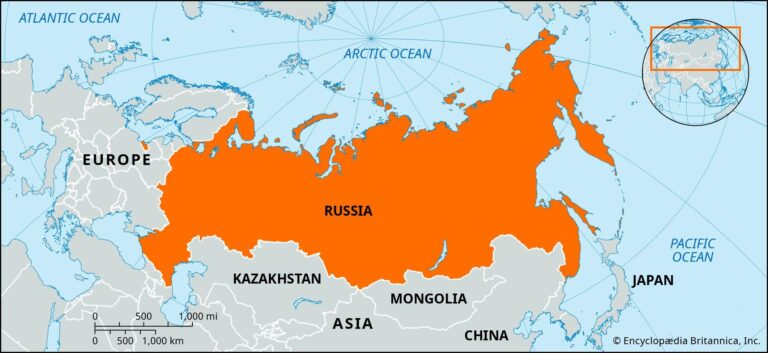Moscow has declared that Russia will not consider ending its military campaign in Ukraine until NATO forces withdraw from the Baltic states, escalating tensions in an already volatile region. In a statement reflecting the Kremlin’s hardline stance, Russian officials linked the resolution of the Ukraine conflict directly to the presence of Western troops in Estonia, Latvia, and Lithuania. This position adds a new dimension to the ongoing war, underscoring Moscow’s insistence on reshaping the post-Cold War security architecture in Eastern Europe.
Russia Links Ukraine Conflict Resolution to NATO Withdrawal from Baltic States
Moscow has made it clear that any meaningful progress toward ending the conflict in Ukraine hinges on NATO’s withdrawal from the Baltic States. Russian officials describe the alliance’s military presence in Estonia, Latvia, and Lithuania as a direct threat to their national security, framing it as a critical barrier to peace negotiations. In recent statements, Kremlin spokespersons emphasized that the Baltic deployment exacerbates regional tensions and undercuts diplomatic efforts, effectively linking the security arrangement in Eastern Europe to the ongoing hostilities in Ukraine.
The stance reflects a broader strategic message from Moscow intending to reshape the European security landscape. Key points emphasized by Russian leadership include:
- The necessity of NATO troop withdrawal as a precondition for dialogue.
- Perception of encirclement stemming from Western military maneuvers.
- Calls for a new security framework that excludes NATO’s forward deployment in Eastern Europe.
| Aspect | Russian Position | Impact on Ukraine Conflict |
|---|---|---|
| NATO Presence | Unacceptable | Obstacle to peace talks |
| Security Claims | Right to protect borders | Strengthened military posture |
| Diplomatic Solutions | Conditional on NATO withdrawal | Linkage of regional stability to Ukraine ceasefire |
Moscow’s Strategic Stance Raises Security Concerns Among Baltic Nations
Moscow’s latest declarations have intensified unease across the Baltic region, signaling a possible reshaping of Eastern European security dynamics. Russian authorities insist that the continuation of the conflict in Ukraine is directly linked to NATO’s military presence in Estonia, Latvia, and Lithuania. This position not only challenges the alliance’s strategic deployments but also raises alarms about Moscow’s expanding sphere of influence and its willingness to use regional security as leverage in broader geopolitical negotiations.
The Baltic states, backed by NATO, have underscored the critical importance of maintaining their current defense posture amid growing Russian rhetoric. Security analysts highlight several key concerns:
- Potential escalation of military activities near Baltic borders.
- Increased cyber and hybrid threats aimed at destabilizing local governments.
- Heightened diplomatic tensions that could affect regional cooperation.
| Country | Current NATO Troop Presence | Reported Increase in Threat Level |
|---|---|---|
| Estonia | 1,200 | High |
| Latvia | 1,000 | Moderate |
| Lithuania | 1,500 | High |
Analysts Recommend Enhanced Dialogue to Prevent Regional Escalation
Experts emphasize the critical need for sustained communication channels among all involved parties to avoid the risk of a broader conflict in Eastern Europe. With tensions mounting, analysts warn that isolated rhetoric and unilateral actions could inadvertently escalate regional instability. They advocate for transparent, continuous dialogue to address security concerns and to create mutual understanding, which could pave the way for de-escalation strategies.
Key recommendations from the analysis include:
- Establishing regular diplomatic forums involving NATO, Russia, and Baltic states to discuss security guarantees.
- Implementing confidence-building measures such as arms control agreements and joint military transparency initiatives.
- Strengthening backchannel contacts to manage crises before they spiral out of control.
| Measure | Purpose | Expected Outcome |
|---|---|---|
| Diplomatic Forums | Dialogue & negotiation | Reduced misunderstandings |
| Confidence Measures | Transparency & trust | Lowered military risk |
| Backchannel Contacts | Crisis management | Rapid conflict resolution |
The Way Forward
As tensions persist, Moscow’s stance underscores the complexity of the conflict and the broader geopolitical struggle between Russia and NATO. With both sides holding firm to their demands, prospects for a swift resolution remain uncertain. The international community continues to watch closely, aware that developments in the Baltics could significantly influence the trajectory of the Ukraine war and regional security at large.




